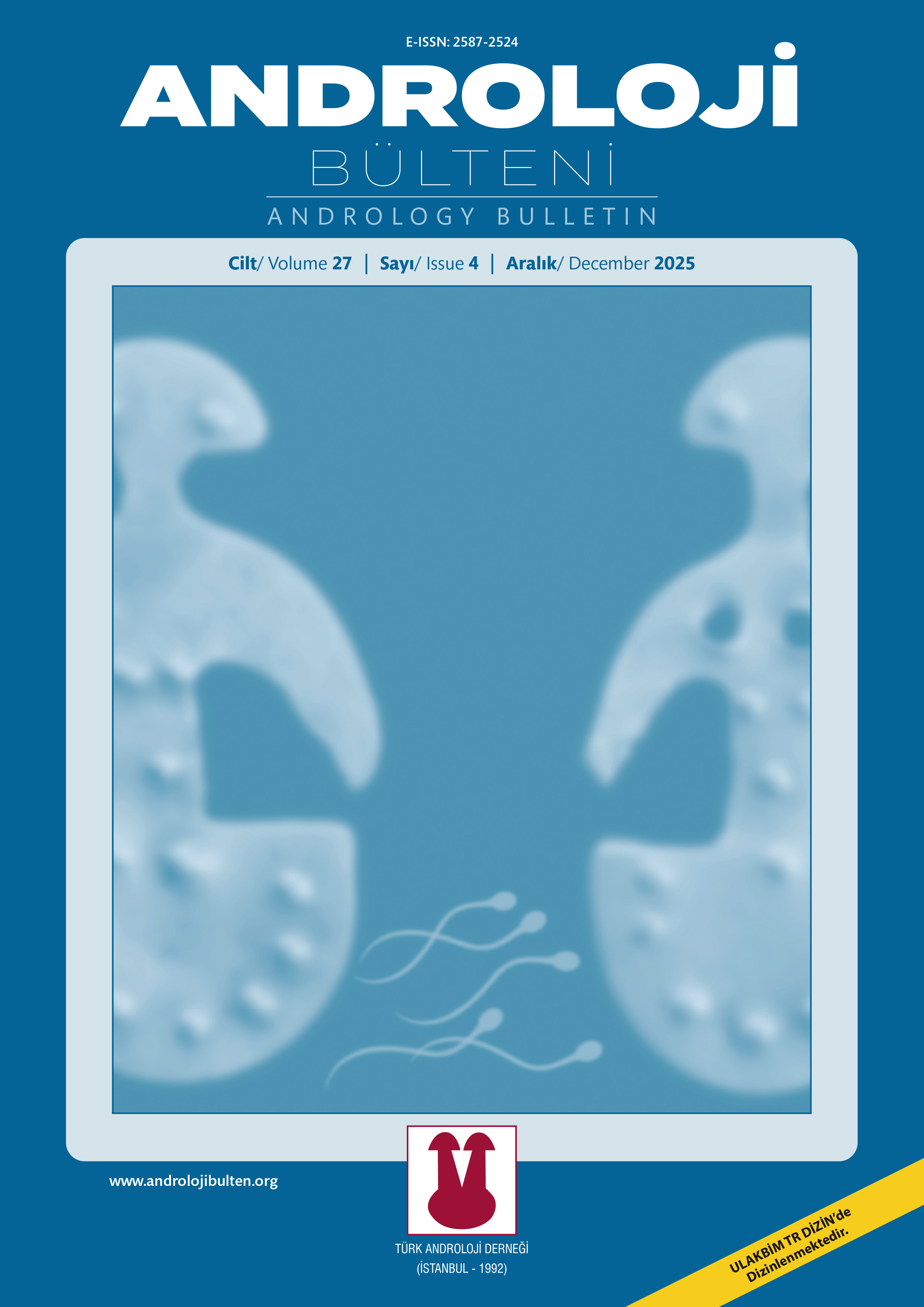
Bu derginin içeriği Creative Commons Atıf-GayriTicari 4.0 Uluslararası Lisansı kapsamında lisanslanmıştır.
Cinsel sağlık dersi alan ve almayan öğrencilerin cinsel sağlık bakımına ilişkin inanç ve tutumları
Nurhan Doğan1, Gamze Fiskin2, Hatice Yüceler Kaçmaz31Amasya Üniversitesi, Sağlık Bilimleri Fakültesi, İç Hastalıkları Hemşireliği Anabilim Dalı, Amasya, Türkiye2Amasya Üniversitesi, Sağlık Bilimleri Fakültesi, Ebelik Bölümü, Amasya, Türkiye
3Erciyes Üniversitesi, Sağlık Bilimleri Fakültesi, Cerrahi Hastalıkları Hemşireliği Anabilim Dalı, Kayseri, Türkiye
AMAÇ: Bu araştırma cinsel sağlık dersi alan ve almayan öğrencilerin cinsel sağlık bakımına ilişkin tutum ve inançlarını belirlemek amacıyla yapılmıştır.
GEREÇ ve YÖNTEMLER: Tanımlayıcı ve ilişki arayıcı tipteki bu araştırma Mayıs 2021 – Temmuz 2021 tarihleri arasında bir üniversitenin sağlık bilimleri fakültesinde öğrenim gören hemşirelik (n=104) ve ebelik bölümünden (n=55) toplam 159 öğrenciyle yürütülmüştür. Araştırmada veriler, Öğrenci Bilgi Formu ve Cinsel Tutum ve İnanç Ölçeği kullanılarak toplanmıştır. Çalışma için gerekli izinler alınmış olup, veriler istatistik paket programıyla analiz edilmiştir.
BULGULAR: Cinsel sağlık dersi alan ve almayan öğrenciler okudukları bölüm dışında sosyo-demografik özellikleri bakımından benzerdir. Cinsel Tutum ve İnanç Ölçeği puan ortalamaları; cinsel sağlık dersi alan öğrencilerin 38,90±8,00 ve almayan öğrencilerin ise 37,40±7,90’dır. Öğrencilerin çoğu cinsel sağlık konuşurken rahatsızlık duyduğunu, cinsellikle ilgili bilgi ve bireyin cinsel fonksiyonlarını değerlendirmede kendilerini kısmen yeterli gördüklerini ve cinsel sağlık dersinin zorunlu olması gerektiğini belirtmişlerdir. Cinsel sağlık dersi alan ve almayan öğrencilerin cinsel sağlık bakımına ilişkin tutum ve inançları arasında ilişki bulunmamıştır.
SONUÇ: Öğrencilerin Cinsel Tutum ve İnanç Ölçeği puan ortalamalarının olumsuz olmadığı, cinsel sağlık dersi almanın tutum ve inancı etkilemediği belirlenmiştir. Öğrencilerin tutum ve inançlarını daha da iyileştirmek için cinsel sağlık dersinin yanı sıra etkili olabilecek başka girişimlerin de yapılması önerilebilir.
Anahtar Kelimeler: cinsel sağlık, hemşirelik, öğrenci, tutum ve inanç
Beliefs and attitudes regarding sexual health care of students who take and didn’t take sexual health lessons
Nurhan Doğan1, Gamze Fiskin2, Hatice Yüceler Kaçmaz31Amasya Üniversitesi, Sağlık Bilimleri Fakültesi, İç Hastalıkları Hemşireliği Anabilim Dalı, Amasya, Türkiye2Amasya Üniversitesi, Sağlık Bilimleri Fakültesi, Ebelik Bölümü, Amasya, Türkiye
3Erciyes Üniversitesi, Sağlık Bilimleri Fakültesi, Cerrahi Hastalıkları Hemşireliği Anabilim Dalı, Kayseri, Türkiye
OBJECTIVE: This study was conducted to determine the attitudes and beliefs of students who took and did not take sexual health courses about sexual health care.
MATRERIAL and METHODS: This descriptive and correlational study was conducted with a total of 159 students from the nursing (n=104) and midwifery departments (n=55) studying at a university’s health sciences faculty between May 2021 and July 2021. In the study, data were collected using the Student Information Form and the Sexual Attitude and Belief Scale. Necessary permissions were obtained to carry out the research, and the data were analyzed with a statistical package program.
RESULTS: Students who took and did not take a sexual health lesson were similar in terms of their socio-demographic characteristics, except for the department they studied. Sexual Attitude and Belief Scale mean scores; It is 38.90±8.00 for students who take sexual health lessons and 37.40±7.90 for students who do not. Most of the students stated that they feel uncomfortable talking about sexual health, they consider themselves partially sufficient in evaluating the information about sexuality and the sexual functions of the individual, and that the sexual health course should be compulsory. There was no relationship between the attitudes and beliefs of the students who took sexual health lessons and those who did not.
CONCLUSION: It was determined that the students’ Sexual Attitude and Belief Scale mean score was not negative, and taking a sexual health lesson did not affect attitudes and beliefs. In order to further improve students’ attitudes and beliefs, it can be suggested that other effective interventions be made in addition to the sexual health lesson.
Keywords: midwifery, sexual health, nursing, student, attitude and belief
Makale Dili: Türkçe
(1361 kere indirildi)













